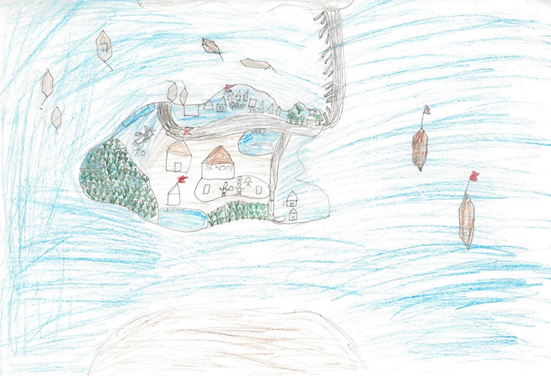Increased frequency of natural hazards and sea level rise are expected impacts of climate change all over the world. The EU Erasmus+ project, Building Resilient Urban Communities (BReUCom), conceives and pilots postgraduate short term Professional Development Programs (PDPs) targeted at these real-world problems. This week, partners from the consortium that implemented the project and the first secretary of the Embassy of India visit the Faculty of ITC, the campus of the University of Twente and the municipalities of Zwolle and Enschede.
BReUCom is implemented by a consortium led by Danube University Krems (DUK-Austria) and includes six partners from India (SPAV, SPAB, KRVIA, NITH, SPARC and CURE) and the department of Urban and Regional Planning and Geo-information Management (PGM), at Faculty of ITC from the University of Twente. BReUCom produced Open Educational Resources by developing ten comparative case studies and ten descriptions of new courses for graduate students in existing programmes following MIT’s OpenCourseWare model.
Site visits
The week was opened by the chair of PGM department, Prof. Dr. Jaap Zevenbergen. First secretary of the Embassy of India Mrs. Mrinalini Kaur Sapra attended the meeting to welcome the consortium and she also met with six Indian students of the Faculty of ITC.
During this week, the partners visit the municipalities of Zwolle and Enschede to see the works done on climate change and the UT Campus for a sustainability walk. There are many activities planned, one of which is a panel discussion with ITC students of the course ‘Global Challenges, Local Action’.
Case studies
PGM has been collaborated in three of the case studies from the project, these are ‘Socio-ecological resilience’ of periurban coastal areas conducted in the northern periphery of the megacity of Mumbai, the case study of Jodhpur city in Rajasthan, and a comparative case study on the understanding of children on flood risk.
The first study looked at the changing landscapes of the urban edge of Mumbai which have been obliterated by human action making the communities inhabiting these zones highly vulnerable to climate-change-related incidents like sea-level rise and coastal erosion.
The collaborative case study on children’s awareness of flood risk was conducted on Panju, a highly vulnerable riverine island. The methods were developed by PGM staff Dr. F. Atun-Girgin by conducting workshops with migrant’s children in the Lombardy Region on flood risk awareness during her presidency in The Others and Disasters NGO in Italy in 2016.
The workshop in Panju Island was jointly conducted by KRVIA, ITC and SPARC in the month of December 2019. The workshop encouraged children to express themselves through the medium of drawing regarding their perceptions of flood risk. The outcomes of the workshop can be used to spread awareness amongst the students in schools in similar vulnerable areas.

Figure 1: Drawing of a flood made by one of the children in the workshop (Jay)
Water stress in Jodhpur city
In the study of Jodhpur city researchers looked at the water stress. Due to non-usage of the traditional water system, the rising groundwater level is one of the main concerns. With ITC’s help, the tacit knowledge that existed in the past to revive the water revive the water related infrastructure was mapped in order to obtain a spatial perspective of the problem. The study found that the water stress can be addressed through this knowledge and co-production of water in Jodhpur city.
More information about the project can be found online on the website of the project.








